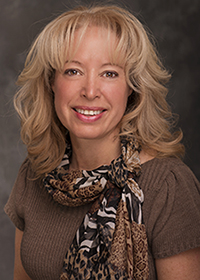Do not be one who shakes hands in pledge
or puts up security for debts;
if you lack the means to pay,
your very bed will be snatched from under you.
–Proverbs 22:26-27 (NIV)
Credit card debt has reached its highest ever, with the average credit card debt amounting to over $6,000. This news is not surprising to us anymore. In fact, it is an essay-stopper — a first line that causes the reader to quit reading. So why would I write it?
Because that’s where everyone expects a writer to go with this text in Proverbs:
Do not be one who shakes hands in pledge
or puts up security for debts;
if you lack the means to pay,
your very bed will be snatched from under you.
But let’s go deeper.
In this text, the author is concerned about our very beds being “snatched from under” us. This metaphor is deeply personal. Our beds are places of safety and comfort. They are places where we spend a third of our time — the most important time, essential for memory, health and wellbeing.
“Shall we take our pillows?” My husband asks this question before every car trip. He knows my answer will be yes because I want my bed away from home to be more like home. We are “tucked in” as children by parents who love us, and we “snuggle under the blankets” to shelter from cold. We “sleep in” as an extravagant way to spend time. Wanting to “sleep in my own bed” means “I want to be home.”
A bed matters.
There are all kinds of horror films about bodysnatchers, but our two verses from Proverbs warn against the bed snatcher. “Your very bed” isn’t a metaphor for your most precious possession; it signifies to your most basic, fundamental possession. The possession you cannot do without, the one that grounds you, connects you to the foundation of who you are.
Once you lose that, you are “bedless,” or, more accurately, homeless. You have nothing.
What takes us to that place? When we make promises that are not easy to keep, we must spend an inordinate amount of time and energy trying to catch up. If in debt, we work extra to make more money. If we overcommit, we stay up late or work extended hours to accommodate.
We fling the doors wide open for bed snatchers.
We can’t see them, of course. They ease in ever so gently and quietly. We are “fine” until we are not. That’s the problem. The line between “fine” and “not fine” is as invisible as the line running through my property separating Redlands and Yucaipa. It is as real as the legal system. People fight over these lines, but if you are standing on the property, all you see is dry ground and a few weed sprigs.
There is no line visible where a very real line exists. A person can step over it without realizing that it is even there. Once you step over it, you step into another territory, a less predictable and reliable world. You find yourself looking back, even as you race forward. There are no signs warning “No way back!” and yet they litter the road in front.
Why live anywhere close to this line? There are so many lines that we can’t avoid — aging, death, disappointment. But this line — the one that appears when we overspend and overcommit — is one we draw with our own hands and then cross with our own choices. “Live beneath your means” is a whisper emerging from old people who appear like they are out of touch. “You are not measured by how much you do” is usually said only by people who are retired. Let’s listen. Now.
What kind of life do we want to live? I want one with my own bed. I have been at risk of losing it, and it was a frightening place to be. No, I’ll spend less, do less, promise less … in order to sleep in my own bed.
—Carla Park, PhD, is assistant vice president for Spiritual Life and Mission at Loma Linda University Health.


